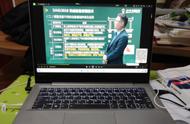
本文讲解了各个题型下,最后180天应该如何备考,对于实在缺少时间复习英语的同学,本文也总结出了一个非常规,但十分有效的应试技巧:针对复习完形、阅读近10年高考高频选项词(即出现在选项里的单词)
以 excited /delighted / thrilled/ gladly / happy 这组词汇为例,如果近10年内,有5年他们都作为完形填空的选项出现,搞懂它们的意思、用法,是否比其他所有单词都更为重要呢?
一、完形填空
(1)10年真题 高频答案词
1. experience
(17’Ⅰ) Imyself went through this 41searching process and found something that has changedmy 42 experience at college for the better:
(17’Ⅲ) I just want tosee the ticket go to good use and for someone to 28 experience a lot of joy,”
(15’Ⅰ) Thishas been a wonderful 55experience for our family.
(15’Ⅱ) 59 Experience is the best teacher.
2. different / difference /differ
(15’Ⅰ) Thingswould have played out so 57 differently if Ihad simply said, “No, we really don’t have 58 money to give more.”
(15’Ⅱ) The lessons theylearned may not be 60 different whatthey would have gotten in school.
(13’Ⅱ) But he's 60 different . His briefcase always has some gloves.
3. kindness / friendly /friendliness
(16’Ⅱ) Rani’s 59 friendliness ---her warm smile, her nods, her ‘I’mhere for you’ 60 attitude ---were all silent signals
(10’Ⅱ) It can set up awarm conversation between two people far apart (远离的); it can keep a 22 friendship with very little effort.
4. appreciate / appreciation /thankful / grateful / gratitude
(18’Ⅲ) “I don't thinkwe would have randomly invited him over but we 55 appreciate it andthe gifts.”
(16’Ⅱ) Rushing out 55gratefully I called out over my shoulder, “By the way, what’s your name?”
(15’Ⅰ) Iasked each of my kids to 45 pick__something they thought our “friend” there would 46 appreciate .
5. learning / learn
(17’Ⅰ) I never felt anurge to 43 learn anysign language before.
(15’Ⅱ) It 57struck me that playing against theother team was a great 58. learning moment for all the girls on the team.
(13’Ⅰ) Just sitting inthe wheelchair was a 39 learning experience,
(11’Ⅰ) You have just 41learned an important lesson about science.
6. assistance / help
(16’Ⅲ) I’m sure I wasthe last person in the world he wanted to accept 32 assistance from. But even that challengehe accepted. I 33 helped him move slowly over the fence.
(15’Ⅰ) Fordays the kids have been looking for others we can 56 help !
7. enter
(15’Ⅱ) They did verywell this season and so 45 entered a tournament, which normally was only for moreskilled club teams.
(17’Ⅱ) Each day, 27 kids 41 entered “ The ThinkingLaboratory.”
8. safely / safe / safety
(16’Ⅲ) When we werefinally 34 safe on the other side,
(14’Ⅱ) he wouldprobably get back 39 safely .
9. same
(14’Ⅰ) Buttheir 44 interest soon wears off and by Januarythose 45 same toys can be found put away in thebasement. 慢慢消失
(13’Ⅱ) MichaelGreenberg feels the 54 same .
10. weight
(14’Ⅱ) Joe’s 45 weight was pulling Simon slowlytowards the precipice.
(13’Ⅱ) As soon as I satdown, my 41weight made the chair begin to roll, Its wheelswere not 42 .
(11’Ⅱ) A moreembarrassing(尴尬)situationoccurs when a student starts falling into sleep and the 30 weight of the head pushes the arm off the 31 desk , and the movement carries the 32 rest of the body along.

11. better / best / great / sweet/ fine / nice
(18’Ⅰ) Hewas an international grandmaster, which 45 meant I would be learning from one of the game's 46 best .
(18’Ⅲ) “What a 58 blessing this young man was to our family! He was so 59 sweet and kind to do this. ”
(16’Ⅱ) Why had Ithought she was cold? Rani was, well, so 58 nice .
(16’Ⅲ) You know, Ididn`t tell you this during the season, but you did 35 fine . Thank you for filling in for 36 me .”
(15’Ⅰ) Steppingout not only helped a brother in 59need , it also gave my kids the 60 sweet taste of helping others.
(15’Ⅱ) This led to some 46 painful experiences on Saturday as they played againstteams 47 better trained.
(14’Ⅰ) Beforepeople retire, they usually 55 plan todo a lot of 56 great things, which they never had 57 time to do while working.
12. end / eventually
(18’Ⅰ) we hadto write a paper on how we plan to 51 apply what we would learn in classto our future professions and, 52 eventually , to our lives.
(17’Ⅱ) Before theschool year 47 ended , I gave the kids a special 48 gift ,
(17’Ⅲ) The 38 trip is scheduled to start on December 21 in NewYork City and continue on to Milan, Prague, Paris, Bangkok and New Delhi before 39 ending in Toronto on January 8.
13. even / yet / instead / still/ just / then, but / finally
(17’Ⅰ) 58Instead , if there had been any talking, it would have 59 caused us to learn less.
(16’Ⅰ) 43 As he got closer, he found 44 another vehicle upside down on theroad.
(16’Ⅰ) Theytold her to stay 52 still until the emergency personnel arrived, 53 but she thought the car was goingto 54 explode .
(16’Ⅱ) 43Yet they feel they can know you 44 just from the sound of your voice.
(15’Ⅰ) 49Giving from our need instead of ourabundance is 50 just what we need to do!
(15’Ⅱ) As a parent, I 49 hated seeing my daughter playing her best, 50 but still defeated.
(15’Ⅱ) They playedaggressively and 56 even scored a goal.
(13’Ⅰ) Itried to find a 47 comfortable positionand thought it might be restful, 48 even kind of nice to be 49 pushed around for a while.
14. graduation
(17’Ⅱ) I learned thatFreddy did several jobs after his 52graduation from high school
(14’Ⅰ) Adolescentsenter high school with great 50 excitement but are soon looking forward to 51 graduation.
15. realize / recognize / beaware of
(13’Ⅰ) Iwent to a group activity, “Sensitivity Sunday” which was to make us more 36 aware of theproblem faced by disabled people.
(13’Ⅰ) Lookingaround, I 50 realized I would have to handle the thing myself!
(10’Ⅰ) Now I 51 realized thatin marriages, true love is 52 acceptance of all that is.
16. excited /delighted / thrilled/ gladly / happy
(18’Ⅱ) So imagine my 42 delight when he emailed me saying hewanted to come to visit me.
(18’Ⅱ) I was 43thrilled ! I arrived early at Byron Bay where we weresupposed to 44 meet .
(14’Ⅰ) Whenparents bring home a pet, their child 48 gladly bathes it andbrushes its fur.
(14’Ⅰ) Adolescentsenter high school with great 50 excitement but are soon looking forward to 51 graduation .
(13’Ⅱ) They don'trealize that he just wants to make them 52 happy.
17. struck / hit / occurred
(18’Ⅱ) He was unconscious and as I looked at his face,something 52 occurred tome.
(15’Ⅱ) It 57 hit me that playing against the other team was agreat 58 learning moment for all the girls on the team.
(12’Ⅱ) At first I gotangry. Then it 31 hit me – I had been giving all of my 32 attention to what was going wrong with my 33 life rather than what was right!
18. meet / met
(18’Ⅰ) I couldhardly wait to 47 meet him.
(18’Ⅱ) I was 43thrilled ! I arrived early at Byron Bay where we weresupposed to 44 meet .
(16’Ⅱ) And they’venever actually 41 met you.
19. save
(18’Ⅰ) I 41jumped at the idea of taking theclass because, after all ,who doesn't want to 42 save
a fewdollars?
(18’Ⅱ) “I just want to say thank you,” he said. “You 58 saved my life!”
20. know
(18’Ⅱ) “Ben,” he replied, and immediately I 54 knew . That stranger was my son.
(18’Ⅲ) “Well, I don't 50 know you all but I will get there to takepictures with the baby”,
易错词汇
一、易错的数字
eighth,ninth,forty,twelfth,twentieth
二、亲属称呼
Daughter, niece , nephew ,cousin ,aunt , uncle ,
三、以下动词加-ed或-ing要双写最后一个字母
regret (regretted, regretting) 后悔
control(controlled, controlling) 控制
admit (admitted, admitting) 承认
occur(occurred, occurring) 出现
prefer (preferred, preferring) 宁愿
refer(referred, referring) 提到
forget (forgetting ) 忘记
permit(permitted, permitting)允许
equip (equipped, equipping) 装备
四、部分过去式和过去分词不规则变化的动词
broadcast(broadcast, broadcast) 广播
flee (fled, fled) 逃跑
forbid(forbade, forbidden) 禁止
forgive (forgave,forgiven) 原谅
freeze(froze, frozen) 结冰
seek(sought, sought) 寻求
shake(shook, shaken) 发抖
sing (sang, sung) 唱歌
sink(sank, sunk/sunken) 下沉
spread (spread, spread) 传播
weave(wove, woven) 编织
tear (tore, torn) 撕碎
hang(hanged, hanged绞死 / hung, hung悬挂)
lie(lied, lied“说谎”/ lay, lain“位于”)
※ 以-ie 结尾的动词,应先把-ie 变为-ick,再加-ing或 –ed picnic panic
五、注意形容词变名词时的拼写变化
long—length 长度
wide—width 宽度
high—height 高度
strong—strength力量
六、个别名词的复数拼写
German(Germans) 德国人
gulf (gulfs) 海湾
handkerchief (handkerchiefs) 手帕
roof(roofs) 房顶
stomach 胃(其复数是stomachs而不是加es)
七、注意动词变名词时的拼写变化
succeed—success成功
pronounce—pronunciation 发音
explain—explanation解释
decide—decision 决定
enter—entrance进入
permit—permission允许
refuse—refusal 拒绝
consider—consideration考虑
discover—discovery发现
bury—burial 埋葬
conclude—conclusion得出结论
arrive—arrival到达
八、注意形容词变副词时的拼写变化
beautiful—beautifully 美丽的
possible—possibly可能的
practical—practically 实际的
particular—particularly特别的
successful—successfully 成功的
straight 形容词副词同型
true→ truly safe→ safely happy →happily
九、注意形容词比较级双写的拼写变化
big---bigger---biggest
fat---fatter---fatter
red---redder---reddest
thin---thinner---thinnest
hot---hotter---hottest
wet---wetter---wettest
十、考纲内只接不定式作宾语的动词和词组
只接不定式作宾语的词和词组:
decide,expect, refuse, wish, hope, order, promise, pretend, offer, happen, seem, makeup one s mind, used, be about, be able, have等。
只跟不定式做宾语的动词:
同意提出做计划, agree (同意);offer (提出);intend, plan (打算,计划);
要求答应来帮忙。demand, ask (要求);promise (答应);help (帮忙);
准备决定遭拒绝, prepare (准备);decide (决定);refuse (拒绝);
敢于选择有希望。dare (敢于);choose (选择);wish,hope,want,expect (希望,想要);
不能做到莫假装, fail(不能;忘记);pretend (假装);
设法做成决心坚。manage (设法);determine (决心)
十一、考纲内只接动名词作宾语的词和词组
(1)只接动名词作宾语的词和词组:
mind, risk, avoid,enjoy, escape, keep, suggest, appreciate, practise, delay, finish, feel like,look forward to, can t help, keep (on), miss, be used to, excuse, be worth,imagine, put off, give up等。
注意:
只跟动名词作宾语的常见动词:
考虑建议盼原谅,consider, suggest/advise, look forward to,excuse/pardon
承认想推迟完成 admit ,fancy, delay/ put off
避免错过继续练 avoid, miss, keep(on), practise
否认准许,介意逃亡 deny,allow/permit, mind, escape,
禁止想象才冒险 forbid, imagine, risk
不禁欣赏 can’t help, appreciate
to 为介词的动词短语
listento 听
get/becomeused to 习惯于
devoteoneself to献身于;专心
getdown to 着手做
be admitted to 被…录取;
lead to 导致
objectto反对;不喜欢;不赞成
look forward to 盼望
pay attention to 注意
stickto 坚持
attendto 专心;注意;照料;
see to 负责;注意
contributeto对…作贡献;有助于
reply to 回答
turn to转向;求助于
take to喜爱;开始
clingto 附着
respond to 回答;对…作出回应
accustom oneself to 使自己习惯于
when itcomes to… 谈到……时
paya visit to 参观……
thekey to ……的答案
accessto 进入;取得的方法
according to 根据

阅读理解
常见的文章或段落的写作手法
1. Bylisting 排列顺序
2. Classification 分类
3. Comparison and contract 比较和对比
4.Cause and effect 因果和推理
5. Example 举例
6.Definition
作者的情感态度What is the author’sattitude toward?
objective客观的,基于事实的 positive 积极的 optimistic乐观的
neutral中立的
controversial引起争论的,有争议的
critical批评(判)的
defensive防御(的)
compassionate 有同情心的
persuasive 有说服力的
favorable称赞的,赞同的;
sympathetic a.体谅的 , 同情的
indifferent 漫不经心的;中立的
阅读理解高频词汇
1. find / fund / findings
(2018ⅡC) Accordingto the key findings,
2. associate / association / institute
(2018ⅡD) In a2014 study, Elizabeth Dunn, associate professor of psychology at UBC, invited...
3. statistic / data / datum / database
4. advertise / inform
(2017ⅠA)These advertise the presence of chicks to adults
(2014ⅠA)The Cambridge Science Festival is pleased to inform you of the sixth annualCuriosity Challenge.
5. review / comment / remark
(2016 ⅢD) Researchersanalyzing word - of - mouth communication --- e-mails, Web posts and reviews.
(2015ⅠA)Miranda has undertaken a review of all of them.
七选五
解题方法:
1、小标题一致性:名词短语、祈使句?
2、通过代词找线索
it指代单数名词或整个句子;
they指代复数名词;
one指代单数可数名词;
that指代不可数名词或句子等
3、从上下文逻辑关系寻找线索
转折对比关系词:however, but,instead, yet, nevertheless, still, whereas, on the contrary, by contrast, in comparison, otherwise etc.
时空顺序关系词: first,next, then, two years ago, later, after that, finally
并列关系词:and, also, further, moreover, what’s more,either… or, neither… nor, not not only … but also
概括总结:to sum up, insummary, in general, to conclude, in conclusion, in a word, on the whole,
inshort
4、判断需要主句 / 从句
复合句是排除选项的重要手段。利用主从句可以直观地缩小选择范围。
1) 从句 ,主句…/ 祈使句
①状语从句 ( If 从句 /Whatever 从句) ②定语从句( As 引导)
2) 主句 / 祈使句 if 从句
5、also /too / either / and / another
书面表达高频词汇
1. course
2.volunteer
3.recommend
4. approach
5.host / hold
6.detail
7. enhance / promote
8.dynasty
9.cultivate / develop
10. enrich
11.introduce
12.exhibition
13. professor
14.stadium
15.celebrate
16. suggestions
17.vacation
18.accommodation
19. dormitory
20.expert
21.contact
22. competition
23.contest
24.appreciate
25. congratulations
26.opportunity
27.position
28. foreign
29.inform
30. schedule
书面表达高频短语
1. consist of 2.participate in 3.be engaged in
4. apply for 5.lecture hall 6.appeal to
7. have a good command of
8. have a passion for
9.have a fancy for
10. entrance fee
11.application form
12. becrazy about
13. be qualified for
14.unforgettable experience
15. inadvance
16. communicate with sb.
17. broaden our horizon
18.a wide range of
19. sign up
20.be scheduled to
21. bedelighted to
22. be pleased to do
23.around the corner
24.all-round
25. before the end of June
26. places of interest
27. Chinese elements
28.enjoy great popularity
语法填空高频考点
(1)动词
1.谓语动词(时态/ 被动语态)
被动:① 被动语态 ______ (v.) by ② 非谓语 ______ (v.) by / 介 / to do
【例1】The food________(prepare) in this way kept its fresh flavor.
【例2】According to arecent survey 68 (make) in the November 2016 Jiangxi News:45 percent of the residents don’t know the names of their neighbors.
【例3】Kun shan tunedeveloped into a national dramatic style _____ (love) by audience.
【例4】Such classicalChinese stories as Romance of the ThreeKingdoms _____ (make) into dramatic pieces.
2.非谓语动词
①表目的:to do
②动名词作主语
③分词(定语 / 状语)
作状语:(1)______ (v.) …, 主 谓… .
(2) 主 谓… . , ______ (v.)…
作定语:…名词 _____ (v.) …
只用to do做定语:1). adj.-est / 序
2) ability / chance /opportunity to do
3) something toeat
辨析:
1) ______ (v.) …, 主 谓… .
2) ______ (v.)… 谓….
3)______ (v.)…until/ before主 does
4)______ (v.) …, and / or 主 will V原
3.动词 → 名词
1)形容词性物主代词 名词 2) the _____ of
3)介词 名词 /doing 4)主 谓 宾
4.be 动词 _______(be)
1)时态 2) 介 being ( be )
5.助动词
1)一般疑问句
【例】_____ anyone losea suitcase at the last stop?
2)部分倒装
【例】 I’ll go on and onand never ______ I give up halfway.
(2)名词
1. a / an / 形容词性物主代词 adj. _____ other n.= others
2. pl. ( n.) 单数名词 → 复数
基数词 / different / many / various / several /these / those / few / a few / one of / each of / neither of / a number of / both of / a great many / acouple of / one and a half hours / dozens of / decades of / scores of / all kinds of / _____ (n.) v原/ are ... 做主语
3. 根据谓语动词或代词推前面名词的单复数。
【例】The _____ (study)show that …
【例】Tu tested_______(medicine) by eating them.
4. 常考的复数名词:years days hours minutes
5. n. (v.) [ that 谓语.... ]
eg. I’m talking about an online backup 70 (solve) that runs quietly in the background onyour computer.
(3)形容词
1. a / an ______ n.
2. 形容词性物主代词 _____ n
3. how/ however adj. / adv. 主 谓
4. 比较级 / 最高级 and比较级 / 最高级
5. so adj. / adv. ... that ...
6. ...be ______ (adj.) 1) 反义词 2) 比较级 / 最高级
7. too adj./ adv. to V原
8.比较级 than
9. 最高级 of / in
10. adj. / adv. enough to do
11. adj. / adv. / n. / v. as / though 主 谓...... ,主 谓......
12. even,much,very much,still,any,a lot,a bit,alittle,far,yet,byfar,a greatdeal,twice, three times,rather,slightly等修饰形容词或副词的比较级
【例】I know ___65____difficult it is to talk in a non-native tongue.
(4)代词
1. its (it) n. 2. the other 谓单
3. make it 4. 反身代词
5. It is / was 被强调部分 that / who ...
【例】It is music whichis extremely important_______ brings me closer to my friends and family.
【例】It has proved to be a useful tool for Chinese people____ (they) to learn standard pronunciation in their early education.
【例】Regardless oftheir similarities or differences, ______ makes great difference to havefriends.
(5)连词
1. 并列句 and /or / but
1) 词性一致 / 时态一致 / 并列句
2)比较级 / 最高级 and比较级 / 最高级
3) 祈使句:
V原 ...... , or / and主 will V原
【例】I felt tiredafter a day’s work and ______ (watch) TV demands little effort.

2. 非限制性定语从句
______ 谓 ... . (which / who / as)
______ 主 谓 ... . (when / where)
主 谓 ......, ______ 名... . (whose)
介 ______ ... . (which / whom)
【例】1) People from all walks of life come to myhouse,from 66 I’vegained lots of social experiences.
2) No one can ignore the rich culture 65 (date)back to ancient times.
3) Find a native Chinese, 67_____pronunciation is quite perfect to correctyou.
4) Ouroffice wasn’t far from Chinatown, ________ I found some very good Chineserestaurant.
5) Thereare many reasons _____ people want to engage in voluntourism.
3. 状语从句
______ 主 谓 ... , 主 谓... . (区分定从与状从)
4. 名词性从句
that / what
5. 特殊句型
虚拟语气: Had 主 done... , 主 w /s / c / m have done ... .
让步状语从句: adj./ adv. / v. / n. as / though 主 谓...
However adj. / adv. 主 谓... .
感叹句: (How / What )
【例】 You can imagine how 61 (terrible) shy I was with so many eyes 62 (fix)upon me.
主语从句: _____ ... 谓... 谓... It happens / seems that ... Itis n. / adj. / done that...
(6)冠词
1. _____ 单名
2.____ adj. 单名
3. the n. 定从 / 非谓语
4. the n. of / in (表范围的介词短语)
5. a / an 合成形容词 n.
eg. an eight- year - old boy
6. 否定词 ( can’t / couldn’t / never ) 比较级 = 最高级
1) 形容词的比较级
couldn’t be a / an adj-er n.
eg. He can’t be abetter boss.
2) 否定词 副词的比较级
eg. I can’tagree more.
(7)介词
1. by 1) 交通工具
2) doing 通过……的方式
3) pp. by表被动
2. without / before / after / by doing
3. under n.
4.with
1) n. adv.
2)和(就远原则)
3)有 / 带有 with a smile
4) 随着 with time goingby.
★特殊情况:instead / than / without / until / except/ but / unless / unlike
新题型丨读后续写
考场答题重点
(1)精读文章,确定文章线索。
每篇文章都有各自独特的写作思路,通过精读文章,找到该篇文章的写作线索,例如什么人(who)什么时间(when)在什么地方(where)因为什么(why)做了什么事儿(what),最后有了什么发展(how)。这样分析有利于考生“顺藤摸瓜”。
(2)仔细审题,明确续写要求。
一般短文后面的“注意”都有对此短文续写的具体要求,如字数限制、使用几处下划线关键词语、续写段落的首句提示,这样考生能做到“心中有数”。
(3)回扣原文,揣摩续写思路。
根据文章后面的要求,再次快速回读短文,抓住文章的思路,结合段首的提示语,最终确定续写段落的思路,同时结合文章划线词语提示,确定续写段落的内容。
(4)拟写草稿,修改错词病句。
在确定了思路和内容之后,最关键的就是结合提示语或者文中划线的关键词语拟写草稿。拟写时,注意句子结构的多样性、语言的丰富性,并通过句与句之间连接词的正确使用,使上下文连贯。
(5)标出续写部分中使用到的原材料中标有下划线的关键词语。
这一点可以帮助考生检查关键词语的使用情况并根据情况做出修改。最后在誊写文字时,务必做到“字迹工整、清晰”。
新题型丨概要写作
考场答题重点
1.找出关键词,概括主旨。
在阅读原文时,学生首先应该利用标题等信息确定文章的关键词、主题和中心句,方便串联起来。
2.提取要点,同类的可以进行合并。
对文章主旨答疑和结构了解清楚之后,将对应的要点罗列出来。受词数限制,可以将同类的要点进行合并。
3.尽量用自己的语言表述。
少使用原文中的语句,多用自己组织的词汇去概括文章,简单也没关系,这样会让老师觉得你读懂了文章。
4.明确文章体裁,用合适的连接词衔接各个要点。
把握文章主题和中心之后,用合适的连接词来表达文章所述,辨别各个要点之间的关系。
本文转载自包学习网站。
许多童鞋留言说想要备考新题型~~(读后续写)包学习APP里有专门的读后续写课程哦~新题型可以刷起来喽!













